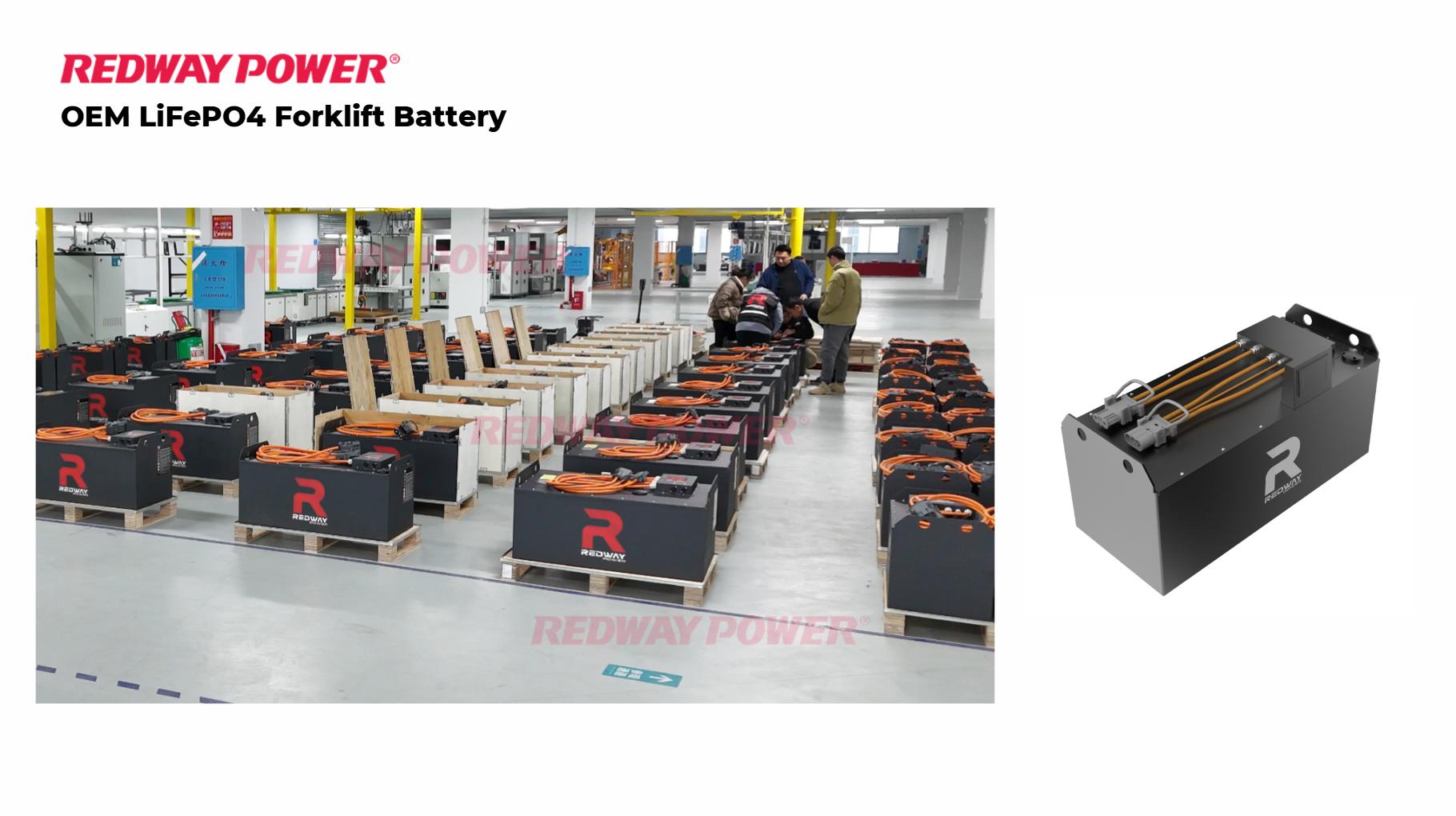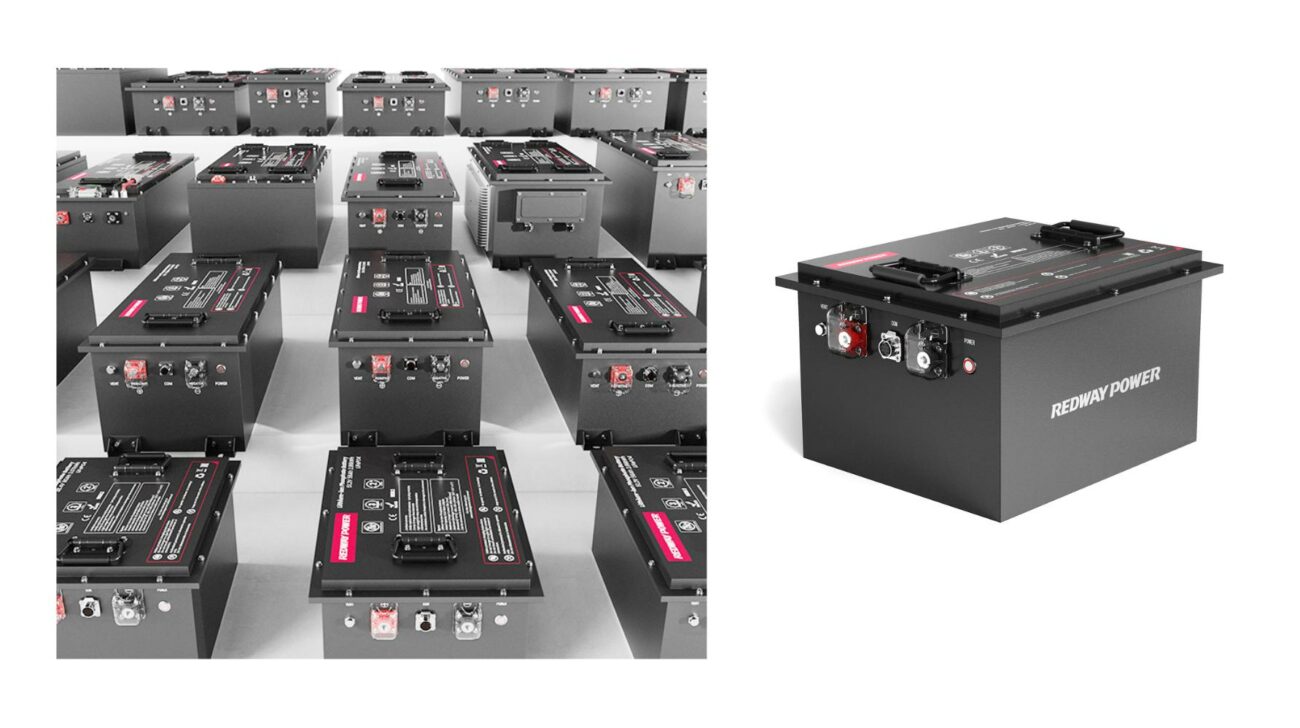Businesses can effectively recycle forklift batteries by working with certified recyclers that recover valuable materials like lead and lithium while preventing environmental harm. Selecting eco-friendly options such as lithium-ion or LiFePO4 batteries helps reduce toxic waste and extend battery lifespan. Partnering with reputable manufacturers like Redway Battery ensures compliance, efficiency, and sustainability.
What Types of Forklift Batteries Can Be Recycled?
Forklift batteries mainly include lead-acid, lithium-ion, and lithium iron phosphate (LiFePO4) types. Lead-acid batteries are the most common and boast over 98% recyclability, making them a strong option for circular economy practices. Lithium-ion and LiFePO4 batteries, while newer, have growing recycling infrastructure and yield valuable recoverable materials with minimal environmental impact.
| Battery Type | Recyclability Rate | Environmental Impact |
|---|---|---|
| Lead-Acid | 98% | Moderate |
| Lithium-Ion | 90% (developing) | Low |
| LiFePO4 | 95% | Very Low |
How Does the Forklift Battery Recycling Process Work?
The recycling process involves several stages:
Neutralization – Electrolytes are neutralized to prevent acid contamination.
Separation – Battery components are crushed and divided into plastics, metals, and chemicals.
Recovery – Metals such as lead, nickel, and lithium are extracted and purified.
Reformation – Recovered materials are reused in new battery production.
Redway Battery emphasizes that advanced recycling systems can recover up to 99% of usable materials, minimizing landfill waste while supporting resource conservation.
Why Is Forklift Battery Recycling Essential for Businesses?
Battery recycling safeguards the environment from hazardous waste, reduces raw material demand, and cuts carbon emissions linked to mining. It also saves disposal costs, improves regulatory compliance, and enhances corporate sustainability performance. Responsible recycling supports circular economy principles—turning waste into reusable resources while demonstrating environmental leadership.
Which Certifications Guarantee Responsible Recycling Practices?
Businesses should only partner with recyclers holding R2v3, e-Stewards, or ISO 14001 certifications. These credentials ensure strict adherence to environmental safety and transparent recovery operations. Certified recyclers provide traceable documentation proving ethical material management, helping companies meet both local and international environmental standards.
How Can Companies Choose Eco-Friendly Forklift Battery Options?
Opt for LiFePO4 batteries from trusted manufacturers such as Redway Battery, known for offering longer life, safer chemistry, and better recyclability compared to traditional lead-acid models. Eco-friendly batteries reduce maintenance needs and hazardous waste, improve charging efficiency, and align with sustainability targets.
| Feature | Lead-Acid | LiFePO4 (Redway Battery) |
|---|---|---|
| Cycle Life | 1,500 cycles | 3,000+ cycles |
| Maintenance | Frequent | None |
| Toxic Components | High | Minimal |
| Energy Efficiency | 75–80% | 95% |
When Should Forklift Batteries Be Recycled or Reconditioned?
Batteries should be recycled when they no longer hold adequate charge or show signs of damage, corrosion, or leakage. Lead-acid units may sometimes be reconditioned to extend life, but lithium-ion and LiFePO4 batteries typically require full recycling once they reach the end of their lifecycle. Timely recycling prevents environmental harm and ensures efficient material recovery.
Where Can Businesses Locate Certified Battery Recyclers?
Certified recyclers can be found through industrial directories, OEM partnerships, or sustainability networks. Many manufacturers, including Redway Battery, provide take-back or exchange programs for spent batteries. Companies should verify each recycler’s certifications, transport safety measures, and ability to provide proper recycling documentation.
How Do Regulations Affect Forklift Battery Recycling?
Environmental agencies such as the EPA enforce strict rules on handling, storage, and disposal of industrial batteries. Non-compliance can result in significant fines or legal penalties. Businesses must document each step of the recycling process and work exclusively with certified recyclers to maintain compliance and protect their environmental reputation.
Can In-House Battery Management Improve Recycling Outcomes?
Yes. Implementing internal battery management—such as maintaining charge logs, inspecting regularly, and storing batteries safely—helps extend their lifespan and simplify recycling logistics. Tracking battery cycles also allows businesses to schedule timely pickups and reduce downtime during replacement.
Does Battery Technology Influence Recycling Efficiency?
Absolutely. Modern chemistries such as Redway Battery’s LiFePO4 use stable and non-toxic materials that simplify disassembly and material recovery. Their modular structure enhances recyclability, lowers energy consumption in recycling, and minimizes hazardous waste—making them a key component of circular manufacturing strategies.
Are Financial Incentives Available for Forklift Battery Recycling?
Yes. Many regions and recyclers offer rebates, scrap credits, or trade-in programs to encourage responsible recycling. These incentives offset the cost of replacement batteries and promote environmental compliance. Redway Battery also provides buyback programs to support cost-effective and sustainable fleet energy management.
How Can Teams Be Educated About Forklift Battery Recycling?
Employee education ensures safer handling and supports sustainability initiatives. Training should cover identifying battery types, proper PPE usage, spill response, and recycling protocols. Clear internal communication fosters accountability and reduces the risk of improper disposal.
Redway Expert Views
“Battery recycling is a vital part of sustainable energy management. At Redway Battery, we design LiFePO4 solutions that extend lifespan, reduce toxicity, and simplify recycling. Responsible end-of-life management not only protects the environment but also enhances long-term cost efficiency. Partnering with certified recyclers ensures full regulatory compliance and strengthens a company’s sustainability footprint.”
— Redway Battery Technical Team
Conclusion
Effective forklift battery recycling requires strategic partnerships, certified recyclers, and the adoption of eco-friendly technologies. Businesses can achieve sustainability and compliance by transitioning to LiFePO4 solutions from Redway Battery, implementing in-house management, and training teams on best recycling practices. Responsible recycling not only protects the planet but also drives operational efficiency and cost savings.
FAQs
Are all forklift batteries recyclable?
Yes. Lead-acid, lithium-ion, and LiFePO4 batteries are all recyclable but require different specialized processes.
How often should forklift batteries be replaced or recycled?
Batteries should be recycled once they lose capacity or reach their rated cycle life, typically between 3–10 years depending on type.
Can forklift batteries be recycled on-site?
No. They must be sent to certified recycling facilities equipped to handle industrial-grade materials safely.
Do eco-friendly batteries cost more upfront?
While LiFePO4 batteries may cost more initially, they deliver longer service life and lower total ownership costs.
What environmental benefits result from recycling forklift batteries?
Recycling conserves resources, prevents hazardous leaks, and reduces CO₂ emissions, directly supporting corporate ESG goals and circular economy principles.








